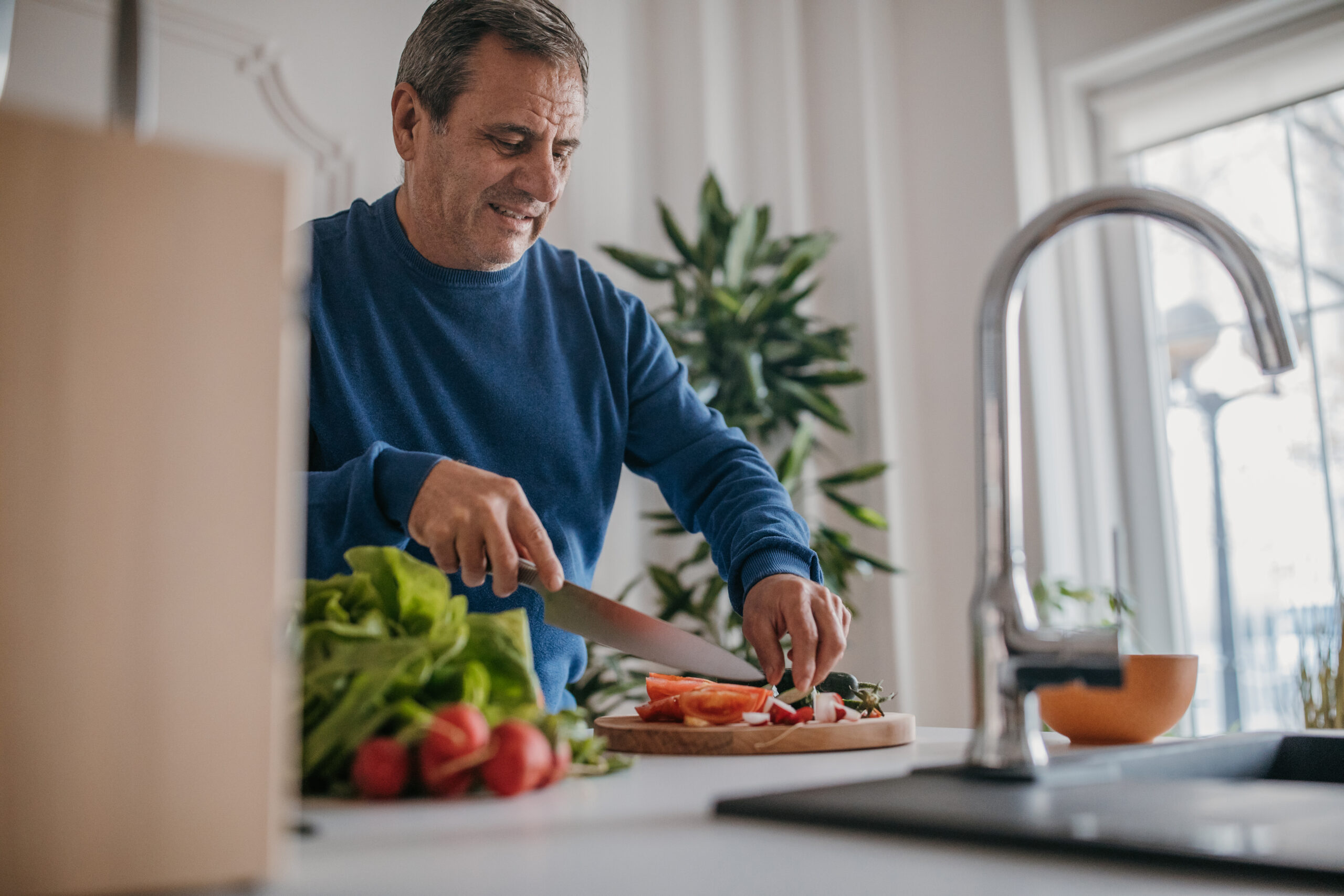
The kitchen is the heart of the home. In fact, there are many quotes about the kitchen that inspire us: “Kiss the Cook,” “Good Food, Good Mood,” “Nothing Brings People Together like Good Food,” “A Messy Kitchen is a Sign of Happiness,” and “Happiness is Cooking Together!”
But how much time do we really spend in the kitchen? One recent survey of 2,000 people from different cultures found that the average person spends about sixty-seven minutes a day in the kitchen, over 400 hours each year (1). Many of those surveyed shared their memories of cooking with extended family members and sharing beloved recipes that are still enjoyed today.
How does time in the kitchen to prepare food affect people with cancer? What happens if fatigue is an issue which limits cooking efforts? Hours of doctor’s appointments, lab work, and cancer treatment take time away from your ability to be at home. On top of managing personal relationships, a career, and other various activities, the burden of a cancer diagnosis adds a great deal of exhaustion. The last thing patients want to do is come home with more tasks to complete.
There are resources available to help maintain a healthy diet throughout your cancer journey. Meal trains and meal delivery services are often valued by cancer patients and their families. When those are not available to you, there are workarounds or kitchen hacks that you can use to save your energy and time in the kitchen, but still enjoy healthy food choices.
- Freeze it!
When you have leftover tomato paste, gravy, and juices, put them in an ice tray. Cooked meats, fruit, and vegetables, can be frozen and thawed out at a later date for meals. Freeze overnight and pop the cubes into freezer bags for use in soups, smoothies, casseroles, and quiche. This will help to preserve your foods longer and provide quick options to make at your fingertips.
- Get equipped!
There are tools and utensils that can perform double duty or save effort while cooking. Kitchen tongs can be used for juicing lemons. You can dice cheese, hard-boiled eggs, and firm tofu by pressing them through a wire-mesh cooling rack. Line cooking pans with non-stick aluminum foil to prevent proteins and veggies from sticking while they roast in the oven. Spritz cooking spray on measuring spoons and cheese graters to keep ingredients from sticking (and easy clean-up too). Set lettuce leaves and herbs on stems in a glass of water to help them last longer. Place paper towels in the bottom of lettuce containers to absorb excess water and keep them fresher.
- Cook Smart!
Use shortcuts and tricks to save your energy in the kitchen. Cook a grilled cheese sandwich in a waffle iron (this also uses less fat). Put frozen ravioli with tomato sauce and mozzarella cheese in a baking dish to cook the easiest lasagna. Double your pasta, rice, and quinoa recipe and freeze the leftovers for stews, soups, and casseroles. Put your muffin tins into service to cook savory items and then freeze the leftovers. Cook once, eat twice! Keep it simple in the kitchen when it comes to saving cooking time. The famous American cooking teacher and breast cancer survivor Julia Child said it best: “You don’t have to cook fancy or complicated masterpieces-just good food from fresh ingredients.”
If you or someone you know has cancer, schedule a free 30-minute telephone consultation with one of our registered dietitians.
Resources
Ask An Expert: Nutrition for Cooking for 1 Person
LLS Health ManagerTM app with recipes, menu planner, grocery lists and more!
